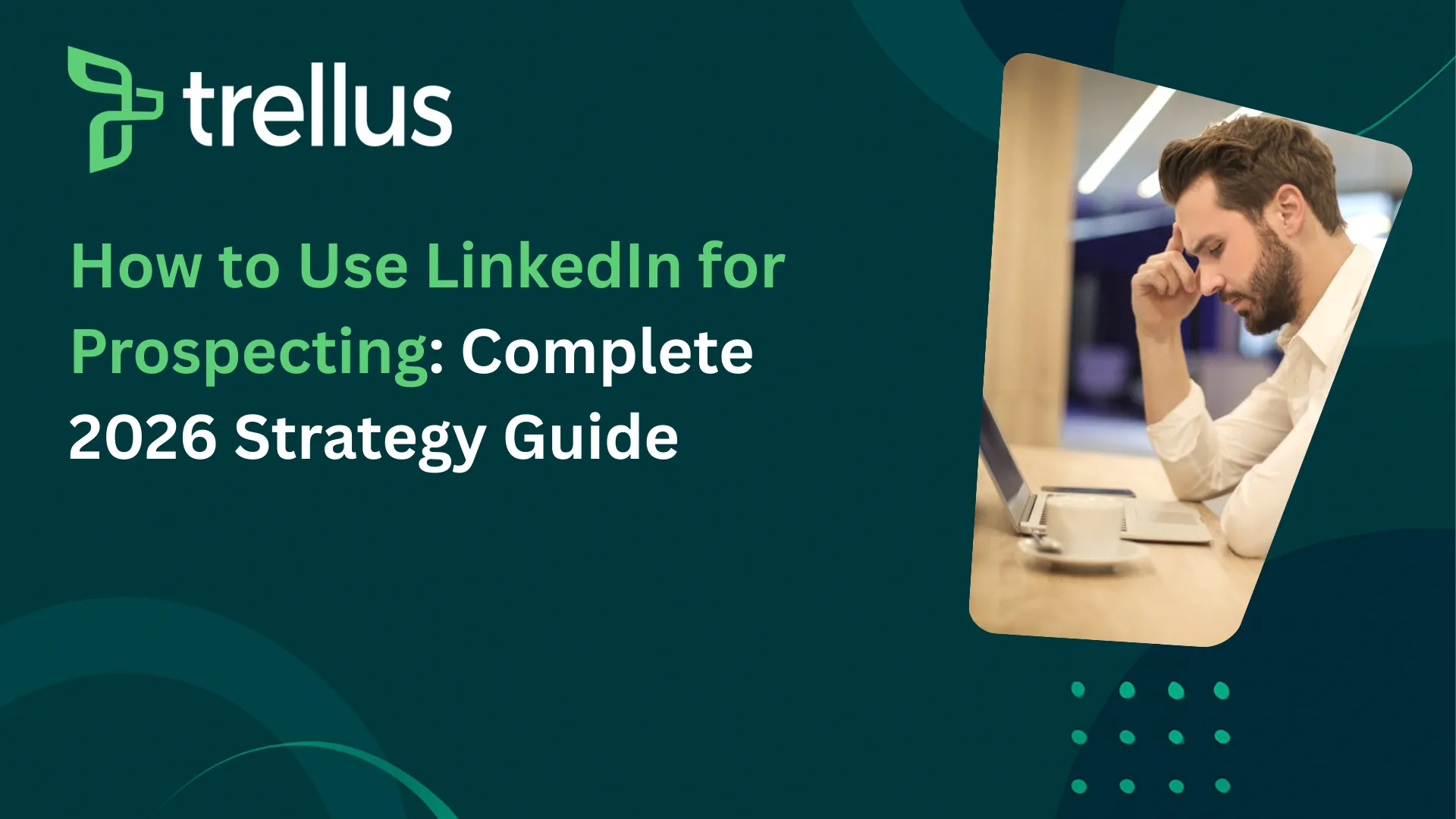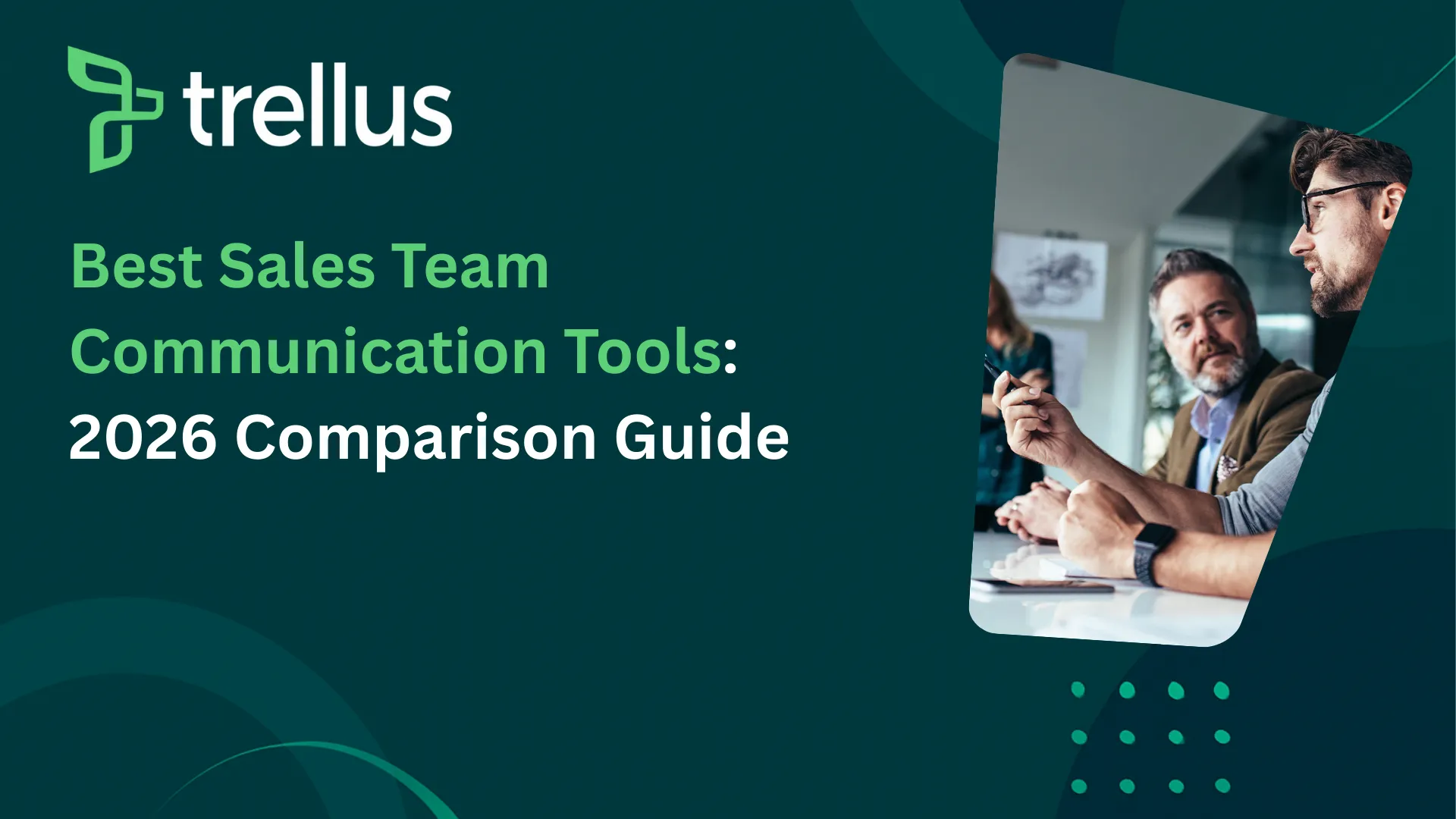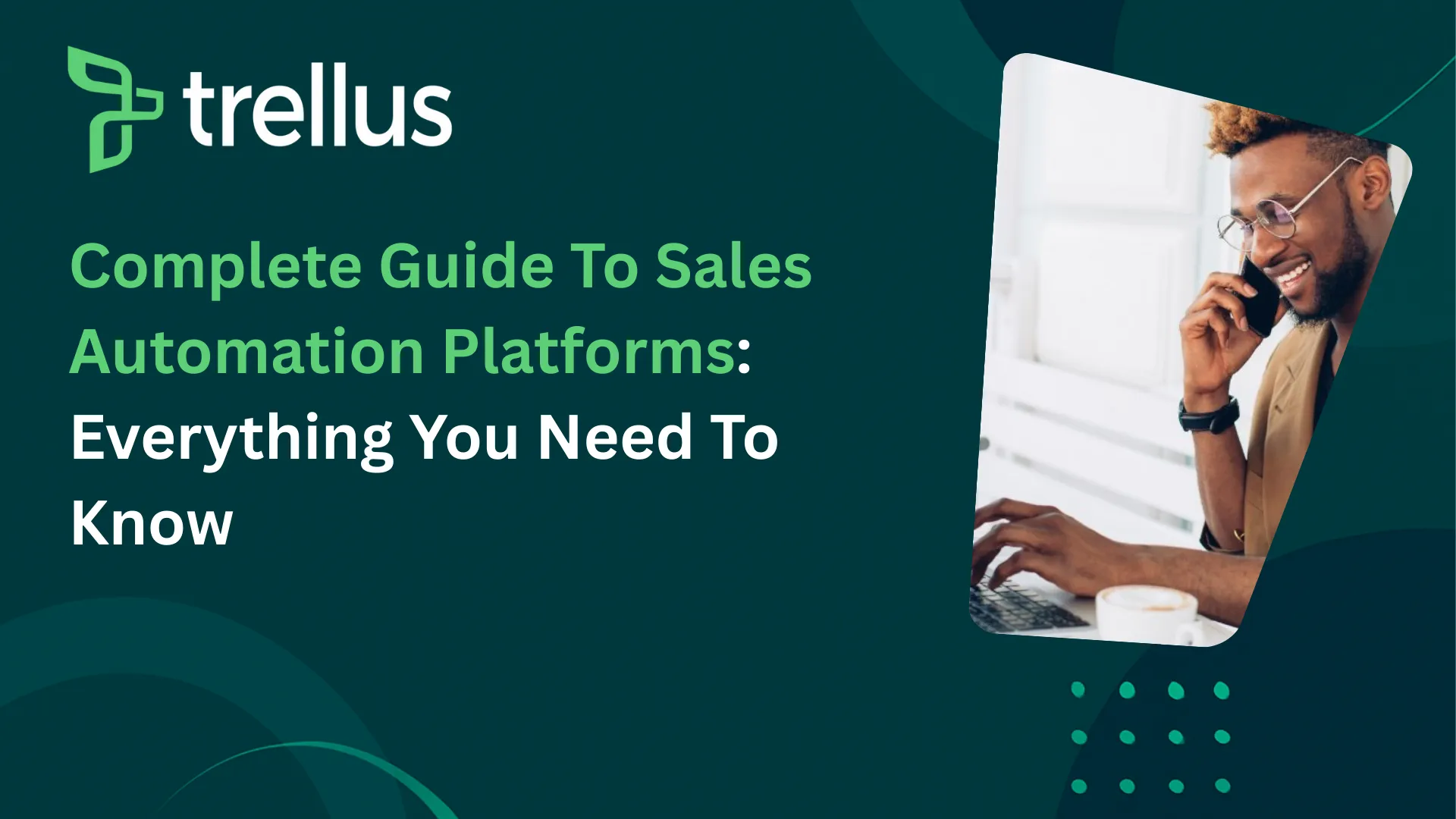
Our Top Picks


You’ve probably heard the phrase “there’s an AI tool for that.” It may not be an age-old saying, but in today’s business environment, it couldn’t be more accurate.
From drafting cold emails to running entire outreach campaigns, sales teams are now supported by technology that automates the tedious tasks and empowers reps to spend more time connecting with buyers.
For enterprise organizations, this shift is no small matter.
According to industry reports, companies that adopted advanced AI-powered sales enablement solutions in 2024 saw up to a 48% increase in revenue. That kind of result makes it clear: sales enablement is no longer a nice-to-have; it’s become a necessity.
In fact, studies show that three out of four reps already rely on some type of sales onboarding and training software, automation platform, or B2B sales acceleration tool to boost productivity, improve conversions, and manage complex workflows. Manual work is rapidly being replaced by smarter, more scalable approaches.
So, if you’re asking what’s the best sales enablement tool for enterprise, the answer isn’t just a single product. Instead, it’s about understanding what enterprise-grade enablement really means, what features to look for, and which platforms are built to handle global, complex sales operations.
What is Sales Enablement Software?
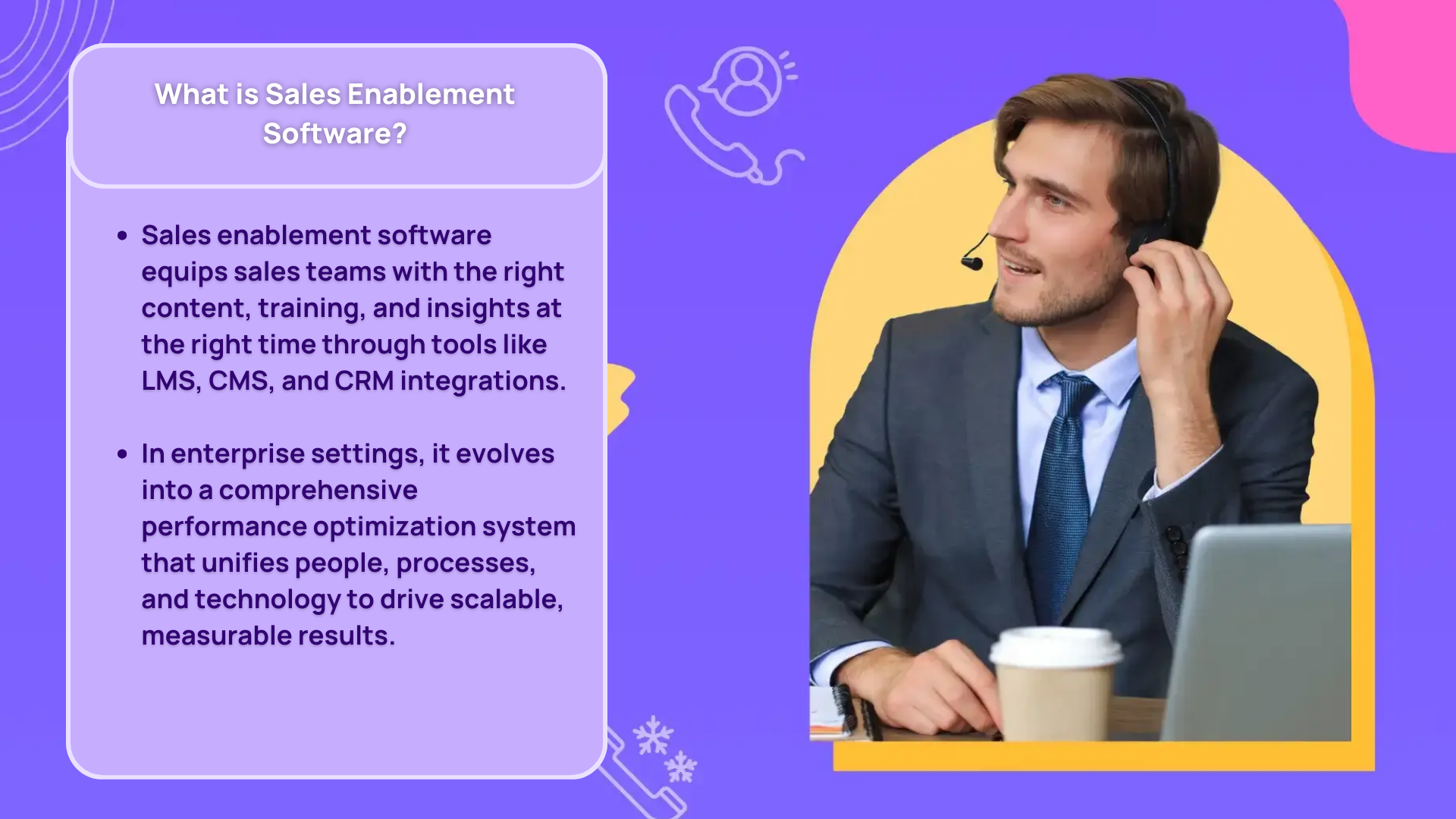
At its core, sales enablement software is designed to empower salespeople with the right content, training, and insights at the right time. The traditional definition covers tools like:
- Learning Management Systems (LMS): These provide structured training, certifications, and role-play exercises that help reps learn faster and perform better.
- Content Management Systems (CMS): A centralized hub where sales teams can access, personalize, and share pitch decks, case studies, playbooks, and proposals.
- Customer Relationship Management (CRM) integrations: Connecting sales enablement activities with pipeline data to show what’s actually working and where deals are stalling.
But when you step into the enterprise world, enablement software goes beyond acronyms. It’s not just about tools; it’s about creating a sales performance optimization system that scales across regions, product lines, and hundreds (sometimes thousands) of sellers.
The real value of an enterprise sales enablement platform lies in how it combines people, processes, and technology into a single ecosystem that drives measurable outcomes.
Sales Enablement at the Enterprise Level
For smaller businesses, sales enablement often means having a few templates, a content library, and some onboarding modules.
At the enterprise level, however, the stakes are higher. Large organizations have to support multiple sales teams across geographies, industries, and product categories — all while ensuring a consistent brand message and customer experience.
Enterprise enablement teams have to ask questions like:
- Do our sales reps have access to scalable sales content management that matches every buyer persona, industry, and stage of the funnel?
- Are reps actually using the content that marketing produces? If not, why?
- Which assets close deals faster, and which ones stall the conversation?
- How do we shorten onboarding for new hires when turnover is high and ramp times are costly?
- Are we losing customers at specific stages of the funnel, and how do we prevent churn?
Answering these questions requires more than spreadsheets or shared drives. It requires CRM-integrated enablement systems that track content usage, measure impact, and connect learning outcomes directly to revenue.
For global organizations, enablement also means providing global sales team support software that works across time zones, languages, and compliance requirements. Traditional programs simply don’t cut it at this scale.
Who Uses Enterprise Sales Enablement Platforms?
A common misconception is that sales enablement software is “just for sales.” In reality, these platforms serve multiple stakeholders across the organization:
- Sales Representatives: They are the primary users, relying on these platforms to access the right material in the middle of a customer call, complete certifications on new products, or practice pitches through AI-powered sales enablement simulations.
- Marketing Teams: Marketing plays a critical role by producing the playbooks, case studies, and campaign assets that sellers use. The enablement platform helps marketing validate its impact by showing which content drives revenue.
- Enablement Leaders: These professionals bridge the gap between strategy and execution. They monitor metrics such as training completion, win rates, and content adoption — ensuring that the investment in enablement translates into actual growth.
This cross-functional usage is what makes sales enablement a sales and marketing alignment tool at its core.
Why Sales Enablement Platforms Matter for Enterprises
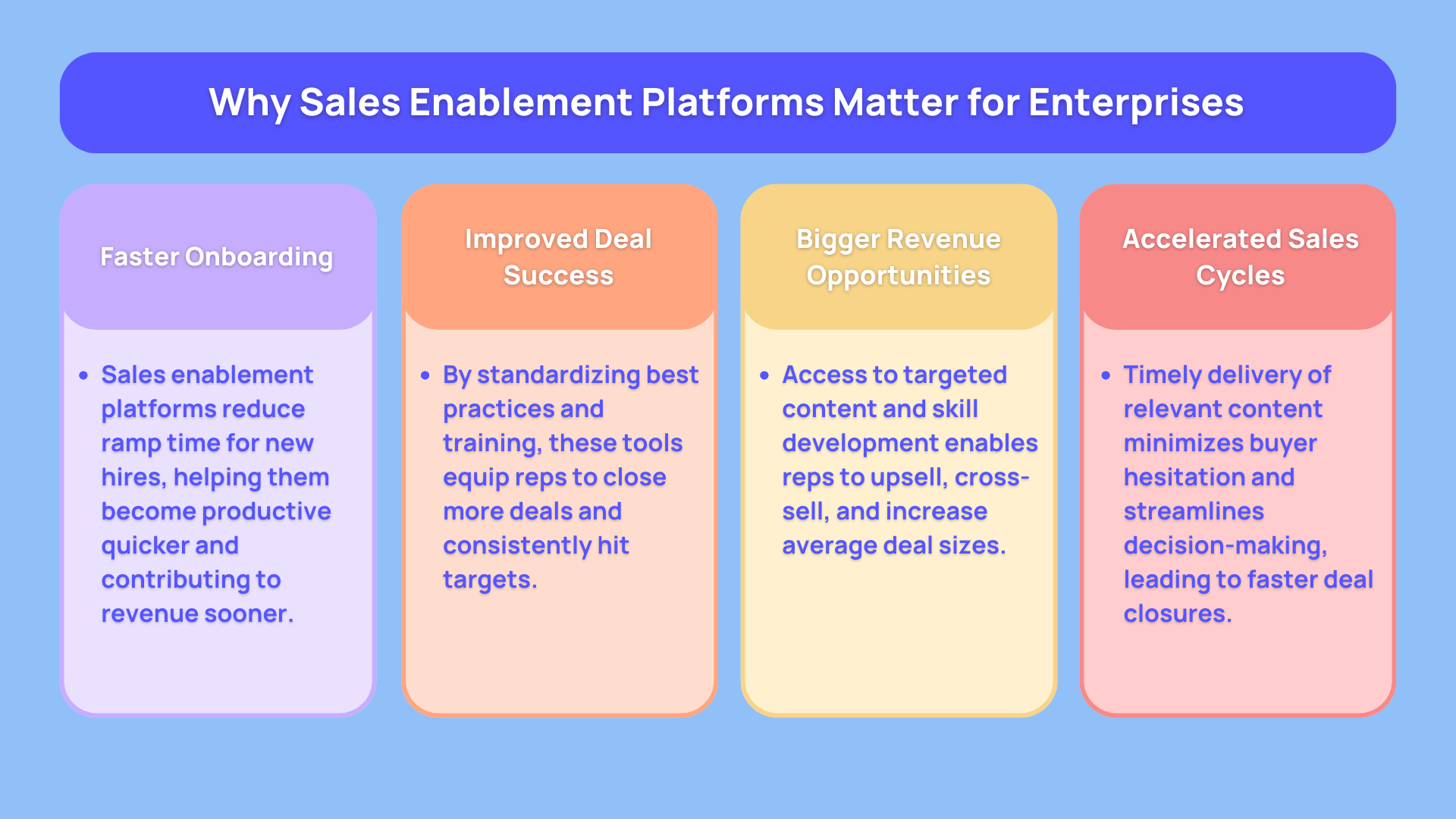
Every piece of training material, every playbook, every piece of collateral represents an investment. Without visibility into whether those investments are driving results, enterprises risk wasting both time and money.
Here’s how buyer engagement solutions and enablement tools deliver value:
- Ramp Time Reduction: Enterprises spend millions onboarding new hires. Enablement tools cut down the time it takes for a rep to become productive, which directly impacts revenue.
- Higher Win Rates: Well-trained, well-prepared reps close more deals. Enablement ensures that best practices are shared and replicated.
- Larger Deal Sizes: With access to better training and content, reps learn to upsell, cross-sell, and bundle solutions more effectively.
- Shorter Sales Cycles: By surfacing the right content at the right time, enablement tools reduce friction and accelerate decisions.
When you add it up, the result is sales performance optimization that compounds over time.
What to Look for in an Enterprise Sales Enablement Platform
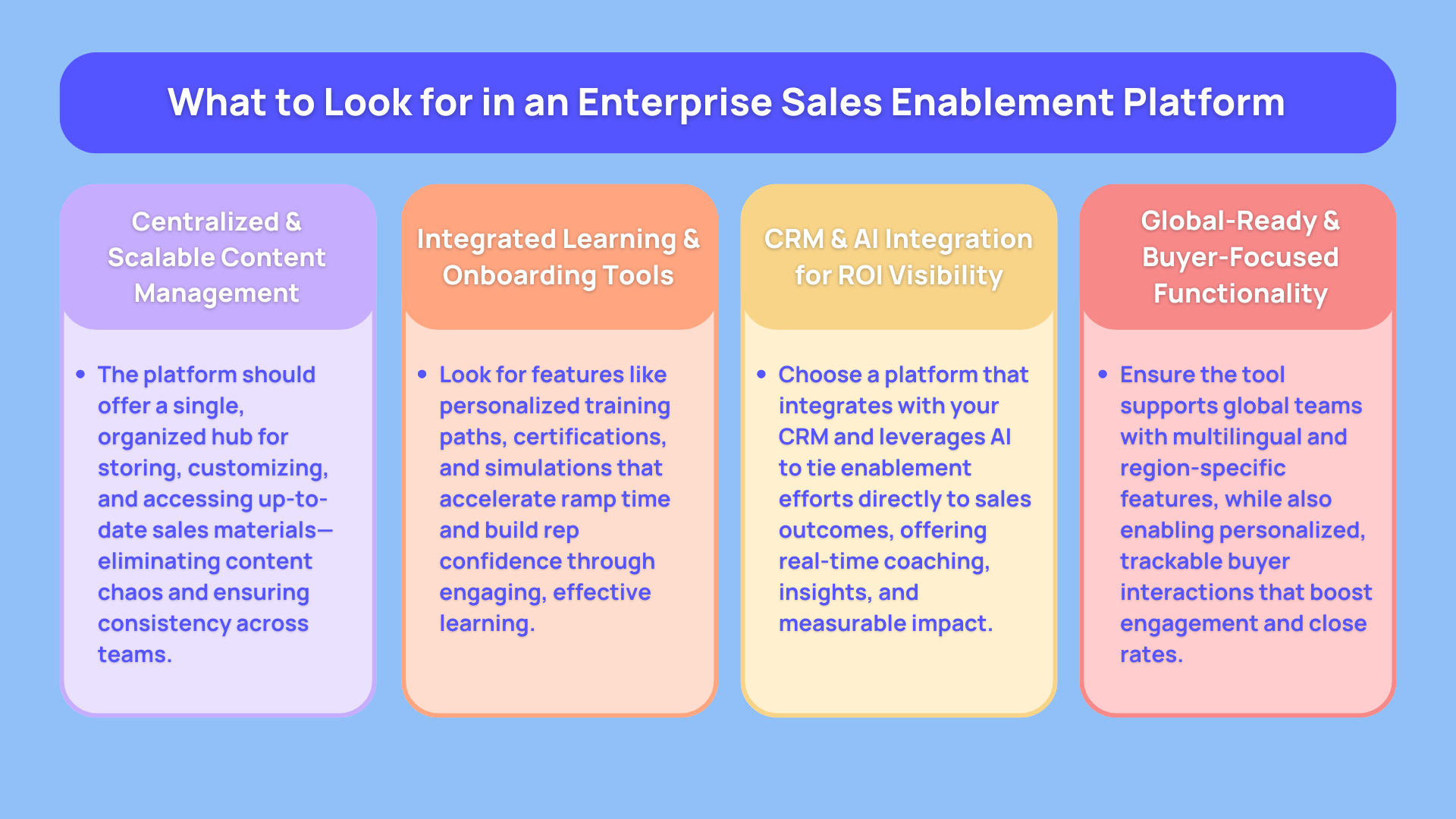
Choosing the best sales enablement tool for enterprise isn’t just about picking a name from a review site. The right platform should align with your strategy, scale with your business, and deliver measurable ROI. Here are the key pillars:
1. Scalable Sales Content Management
Enterprises produce vast amounts of sales collateral. The right platform ensures everything is stored, searchable, and customizable in one centralized hub. This prevents the chaos of multiple cloud drives and ensures reps always use the most up-to-date material.
2. Sales Onboarding and Training Software
Ramp time is expensive. Platforms that offer personalized learning paths, gamification, certifications, and role-play simulations give reps the skills and confidence to succeed faster.
3. CRM-Integrated Enablement Systems
If enablement lives in a silo, it’s impossible to prove its value. Integration with CRMs like Salesforce, HubSpot, or Microsoft Dynamics connects enablement activity directly to revenue outcomes.
4. AI-Powered Sales Enablement
Artificial intelligence is no longer a buzzword. It’s a practical necessity. From conversation intelligence to personalized content recommendations, AI features save time, surface insights, and coach reps in real time.
5. Buyer Engagement Solutions
Modern buyers expect personalization. Platforms that allow sellers to share interactive content, track engagement, and tailor experiences deliver stronger relationships and higher close rates.
6. Global Sales Team Support Software
Enterprises often span continents. Platforms must support multilingual content, regional compliance, and collaboration across different business units without creating silos.
The Best Enterprise Sales Enablement Tools to Consider
Based on reviews from G2 and Capterra, here are some of the leading enterprise sales enablement platforms in 2025:
Seismic: The All-in-One Enterprise Powerhouse
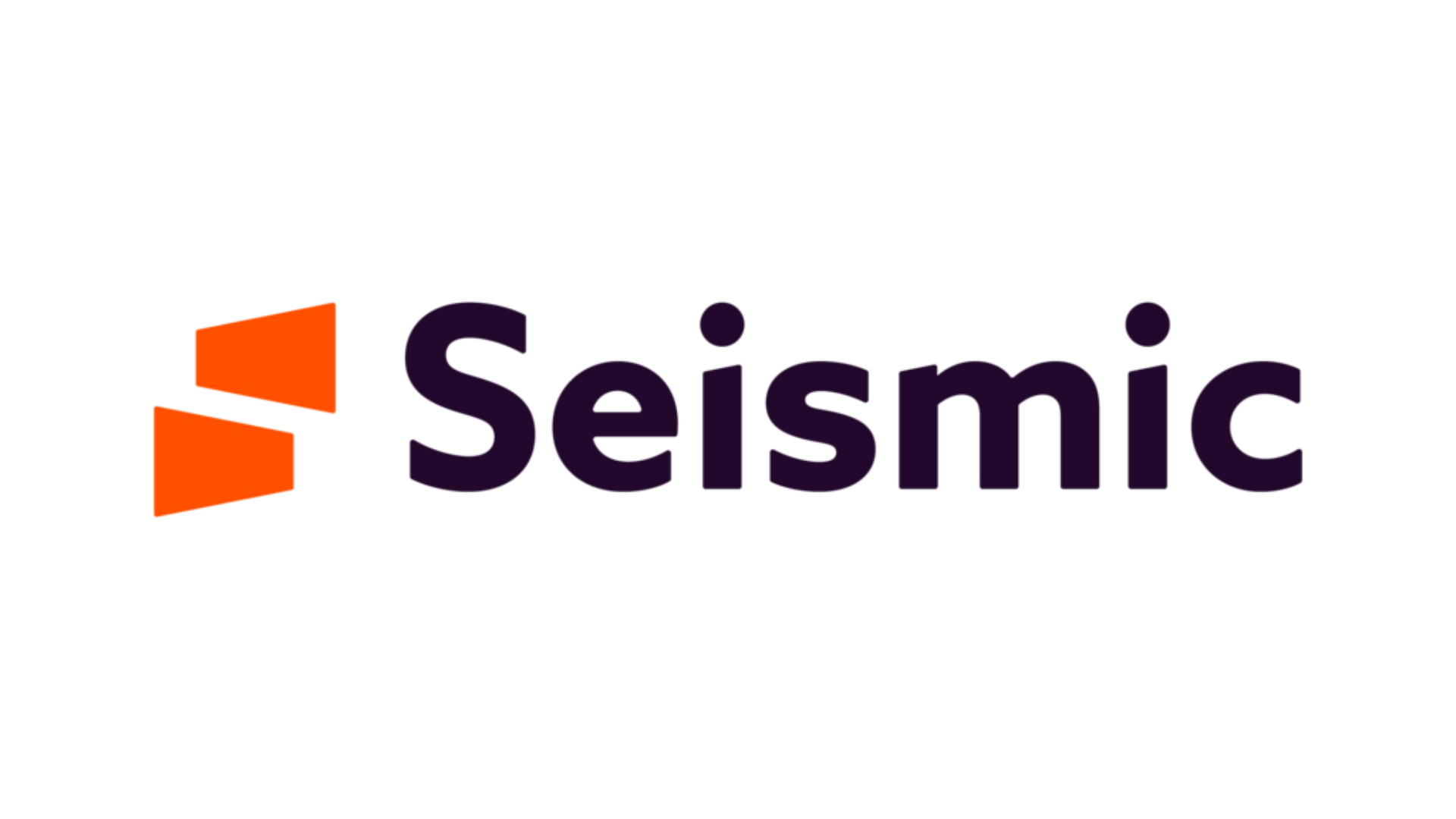
Seismic’s Enablement Cloud combines learning, content, CRM analytics, and AI into one platform. With over 150 integrations, it’s designed for enterprises that need a true global sales team support software solution.
- Learning management: Structured certifications, role-plays, and partner training.
- Content management: AI-driven personalization and multimodal content creation.
- CRM integration: Rich analytics from millions of interactions.
- AI features: Conversational search and territory-based recommendations.
HubSpot Sales Hub: The User-Friendly CRM-Integrated Choice
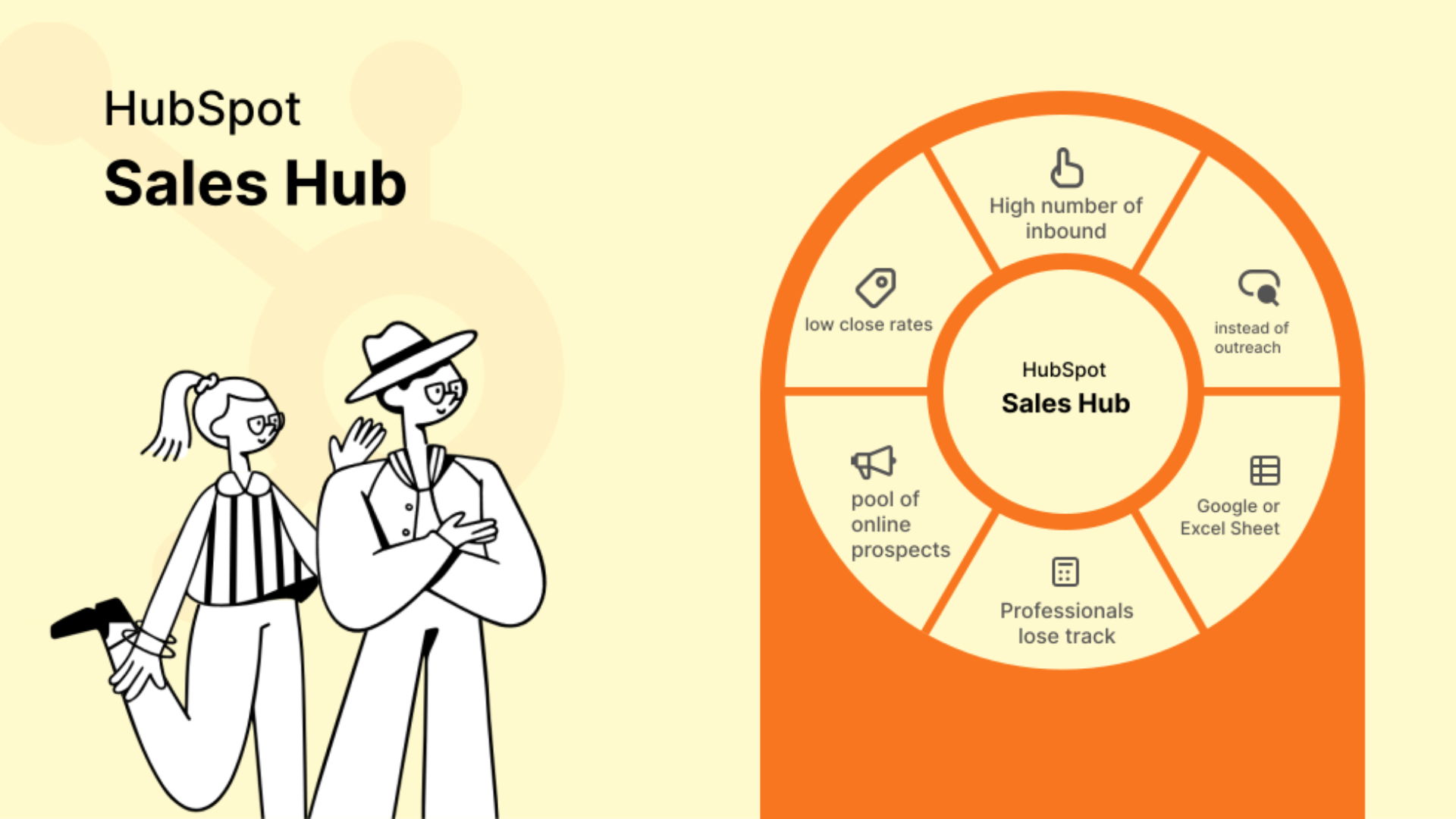
Known for its simplicity, HubSpot’s Sales Hub is particularly strong as a sales and marketing alignment tool for mid-market and enterprise teams.
- Training: Conversation intelligence and objection analysis.
- Content: Interactive playbooks and guided selling.
- CRM integration: Native email, pipeline, and reporting.
- AI tools: Forecasting, guided selling, and smart reporting.
Mindtickle: Gamified Training and Revenue Enablement
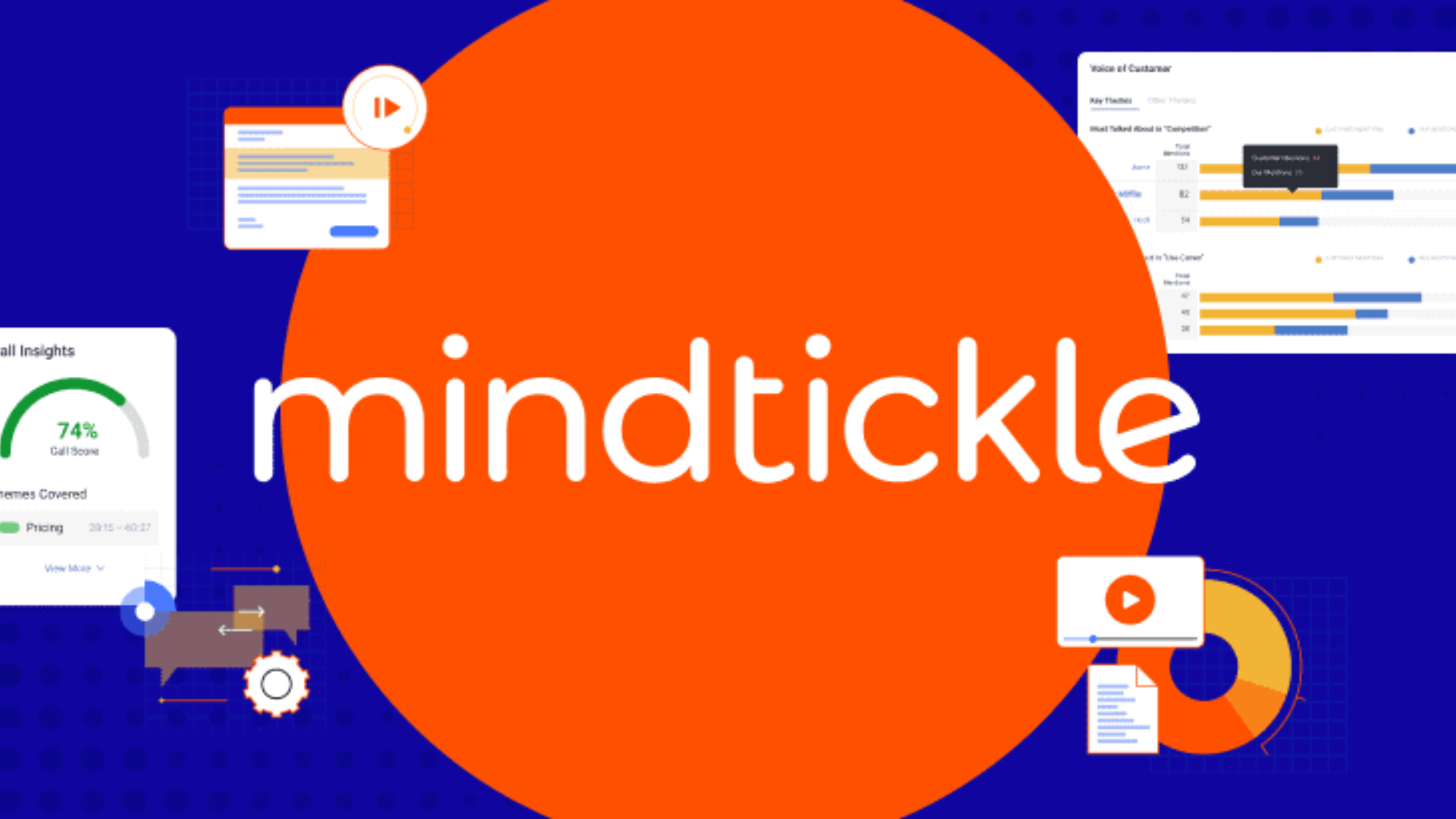
Mindtickle positions itself as a B2B sales acceleration tool that ties learning directly to revenue outcomes.
- Learning: Gamification, leaderboards, and reinforcement.
- Content: Searchable repository with version control.
- CRM integration: Maps skills and behaviors to revenue results.
- AI coaching: Role-plays, simulations, and personalized practice.
Highspot: AI-First Enablement and Coaching
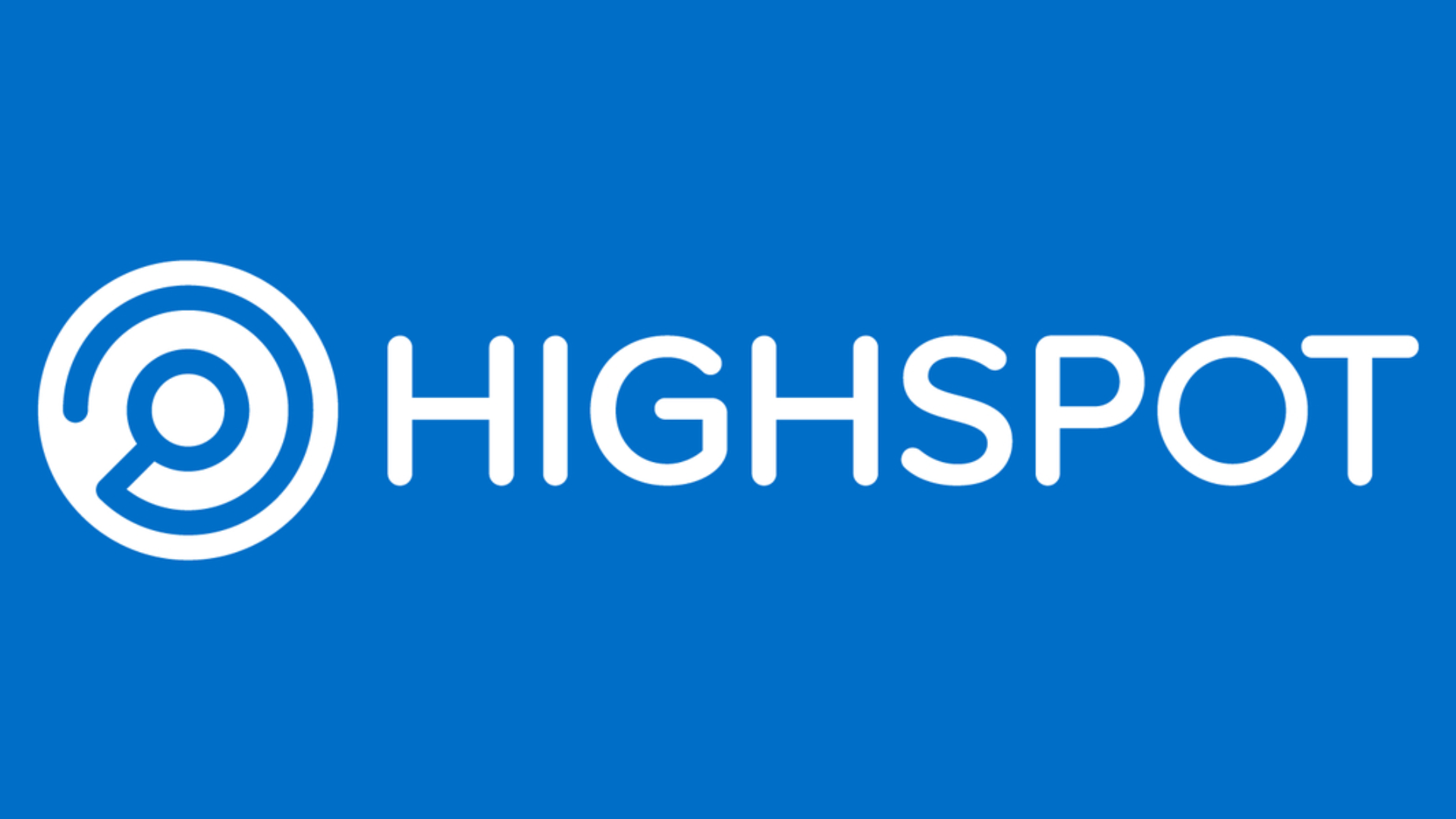
Highspot is widely recognized for combining buyer engagement solutions with training and analytics.
- Learning: Customizable training paths and video practice.
- Content: AI-powered search and sharing.
- CRM integration: 100+ integrations with Salesforce, Microsoft, Google, etc.
- AI coaching: Real-time conversation intelligence and meeting summaries.
Showpad: Visual Engagement and Content Personalization

Showpad shines in industries where product visualization is critical, such as manufacturing or healthcare.
- Training: Interactive courses and AI-assisted coaching.
- Content: Customizable templates and immersive product experiences.
- CRM integration: Salesforce, Marketo, Outlook, and Gmail.
- AI pitch practice: Benchmarking against top industry performers.
Demodesk: Virtual Sales Excellence
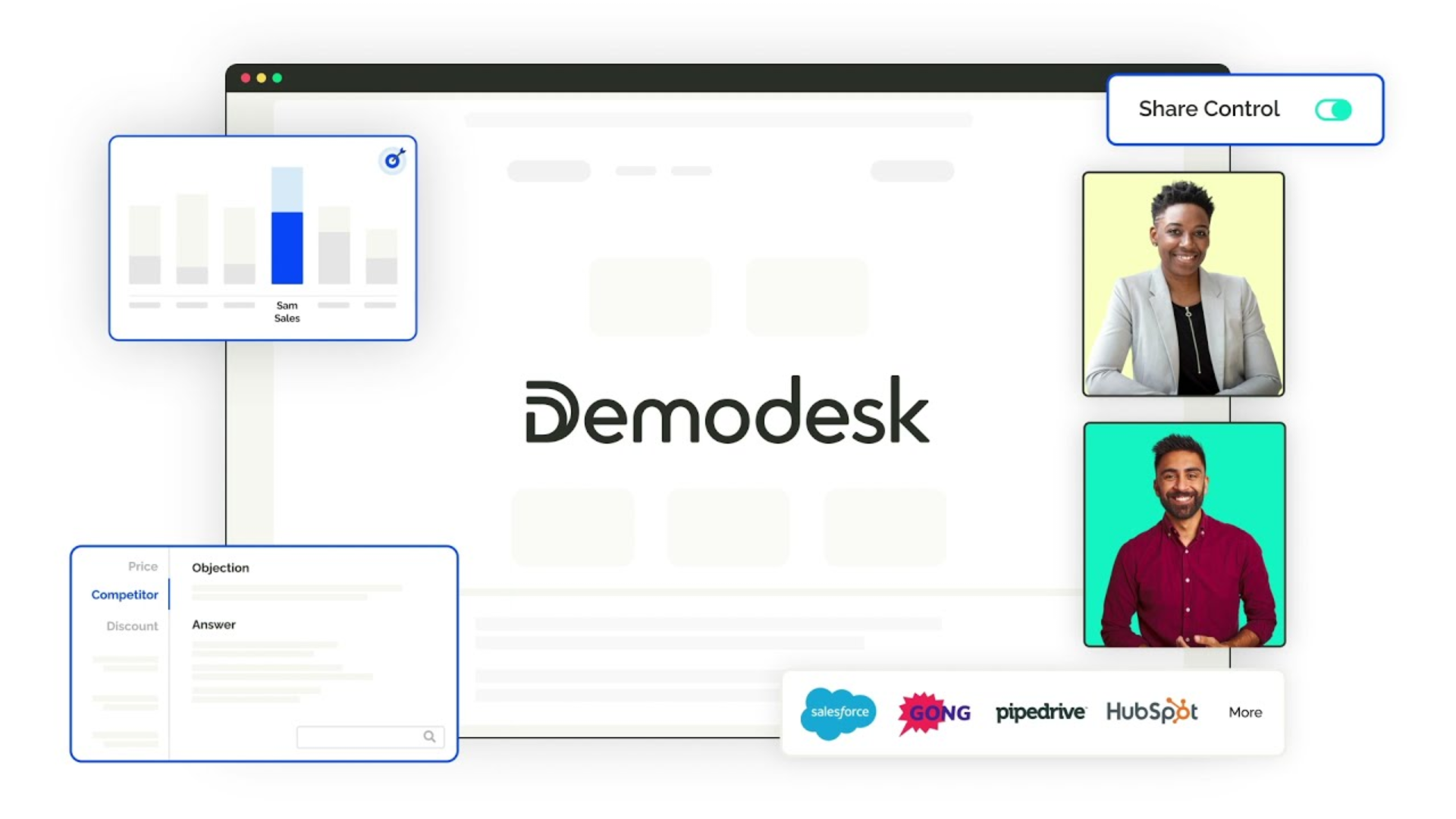
Demodesk focuses on buyer engagement solutions for virtual-first sales teams.
- Training: AI coaching based on popular methodologies like MEDDIC or BANT.
- Content: Searchable meeting libraries and transcriptions.
- CRM integration: Automatic call notes and pipeline syncing.
- AI assistant: Automated transcription, translation, and meeting summaries.
ClientPoint: Document-Centric Enablement
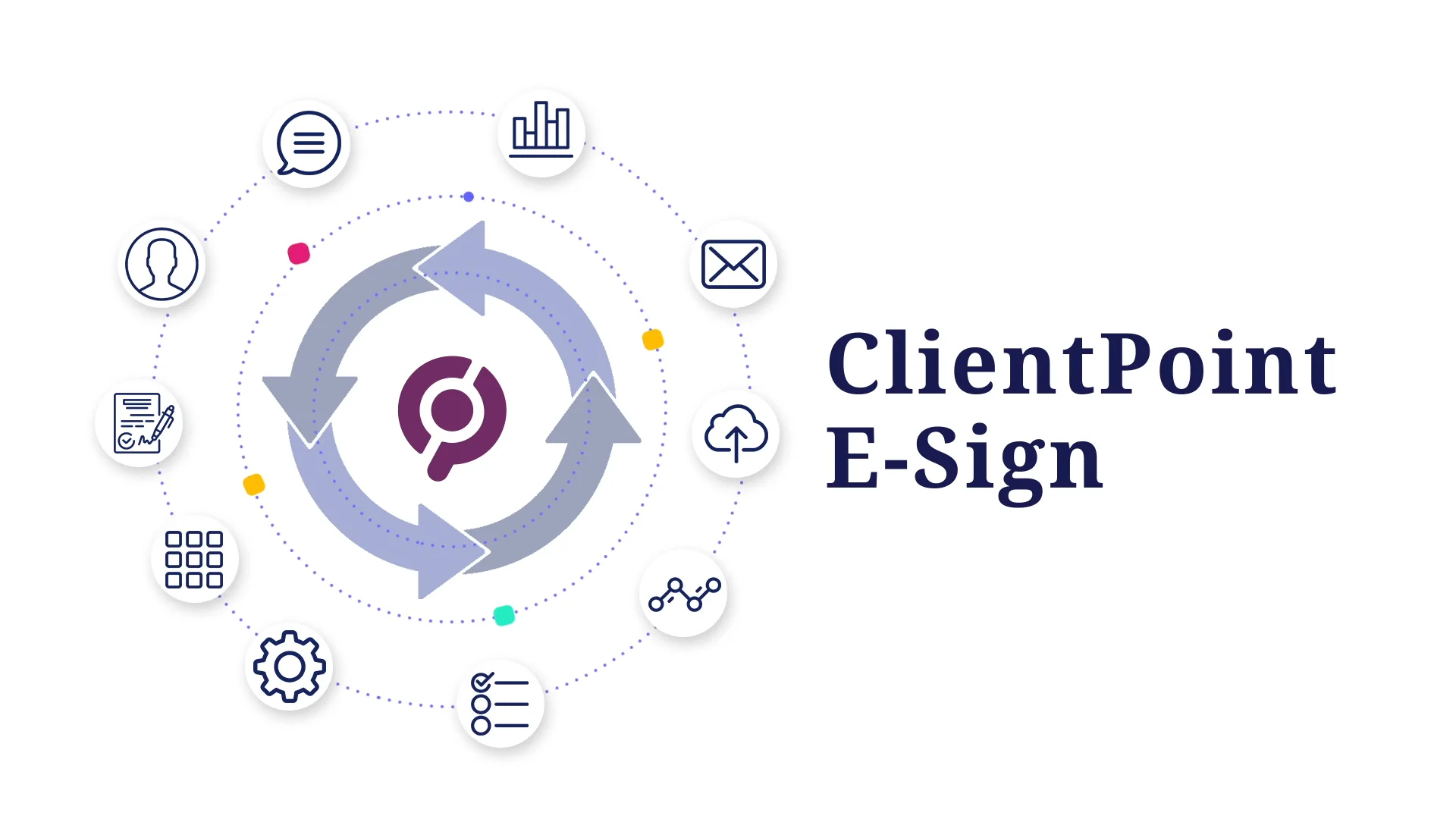
ClientPoint is ideal for enterprises focused on proposals, contracts, and document-heavy processes.
- Content: Master content library with branded proposals.
- CRM integration: Works with Salesforce and Microsoft Dynamics.
- AI assistant: Relationship nurturing through chatbots.
Key Benefits of Enterprise Sales Enablement Platforms
When done right, the impact of enablement compounds across every aspect of the sales organization:
- Faster Onboarding: Personalized learning reduces ramp time.
- Unified Content Library: Consistency and efficiency across teams.
- Higher Productivity: Less searching, more selling.
- Stronger Buyer Engagement: Personalized, interactive experiences.
- Better Sales Performance: Coaching and analytics drive higher close rates.
For enterprises, these benefits aren’t just operational wins; they directly translate into higher revenue, lower acquisition costs, and stronger customer retention.
Choosing What’s Best for Your Enterprise
So, what’s the best sales enablement tool for enterprise? The truth is, there’s no one-size-fits-all answer. The best platform depends on your specific needs:
- If you want a fully loaded ecosystem: Seismic.
- If ease of use matters most: HubSpot Sales Hub.
- If training is your priority: Mindtickle.
- If AI coaching is critical: Highspot.
- If visual product selling is key: Showpad.
- If your sales motion is mostly virtual: Demodesk.
- If you’re proposal-heavy: ClientPoint.
The real key is to evaluate platforms not just on features but on scalability, integration, and alignment with your sales and marketing strategy.
An enterprise sales enablement platform should feel like a force multiplier, not just another tool.
At the end of the day, the best solution is the one that brings together sales onboarding and training software, scalable content management, CRM-integrated enablement systems, AI-powered coaching, and buyer engagement solutions — all in a way that supports your global sales force and accelerates revenue growth.



